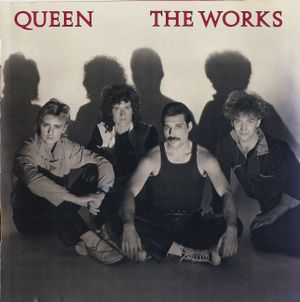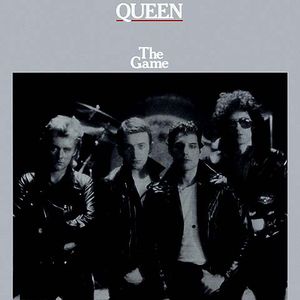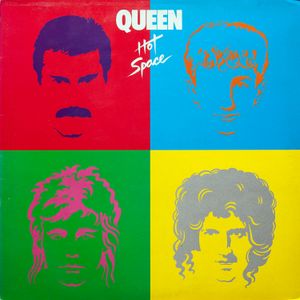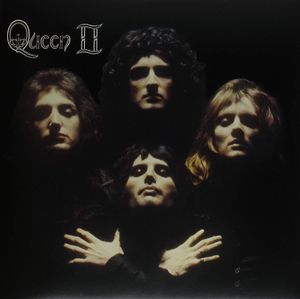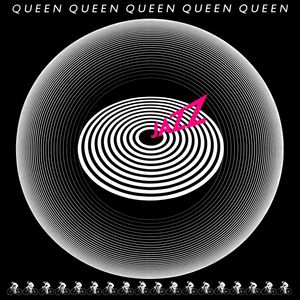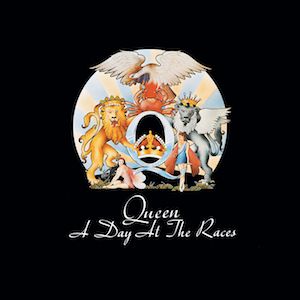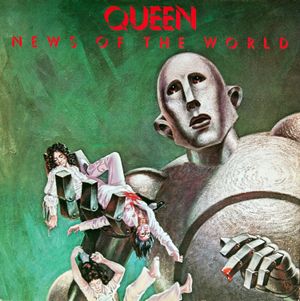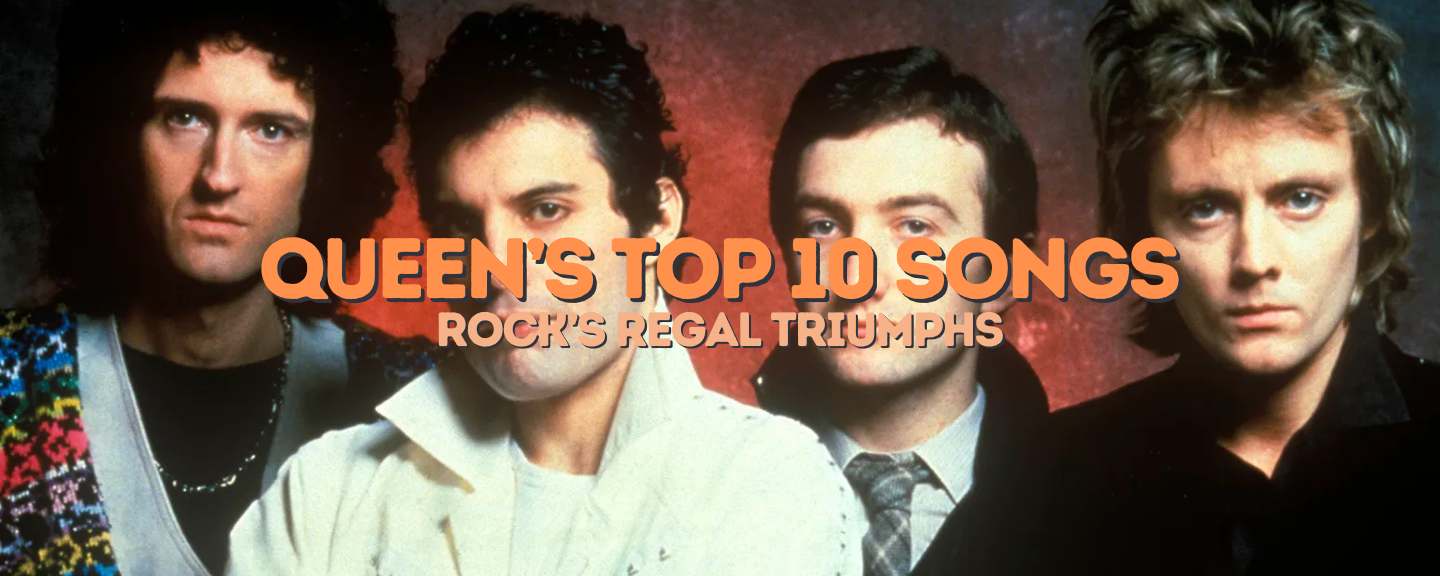
Queen Top 10 Songs
Listen on Spotify
Queen: From Prog Rock Pioneers to Stadium Anthems
Queen, a legendary British rock band, burst onto the scene in London in 1970, spearheaded by the charismatic Freddie Mercury (vocals, piano), the virtuoso Brian May (guitar, vocals), and the powerhouse Roger Taylor (drums, vocals). They initially carved their path through a blend of progressive rock, hard rock, and heavy metal, crafting intricate and ambitious soundscapes.
But Queen wasn't content with staying in their sonic comfort zone. They embraced musical evolution, gradually incorporating elements of arena rock and pop rock, creating a sound that resonated with a wider audience. Before their rise as Queen, May and Taylor had already made waves with the band Smile. It was Mercury, a devoted fan, who urged them to push the boundaries of their sound and embrace theatrical performances. In 1970, he joined their ranks, and the band adopted his suggestion for their name: "Queen". The lineup was completed by the arrival of John Deacon (bass) in 1971.
Their self-titled debut album dropped in 1973, laying the groundwork for a truly phenomenal career. 1974 saw Queen break into the UK charts with their second album, Queen II, followed by the explosive Sheer Heart Attack later that same year. But it was their 1975 masterpiece, A Night at the Opera, that propelled them to international stardom. This album featured the iconic "Bohemian Rhapsody," a six-minute opera rock epic that dominated the UK charts for an astounding nine weeks and revolutionized the music video format.
The band continued their reign of rock with the 1977 album News of the World, which spawned the anthems "We Will Rock You" and "We Are the Champions" - now synonymous with sporting events worldwide. Queen's musical journey was marked by their willingness to experiment, their theatrical stage presence, and their ability to craft anthems that continue to inspire and resonate with generations of fans. They remain an undeniable force in the world of rock, a testament to their raw talent, creative brilliance, and unwavering passion for music.
Few bands have blended theatrical flair, powerhouse vocals, and genre-defying creativity quite like Queen. In this countdown, we’ll explore ten of their most iconic tracks—from grand operatic masterpieces to infectious radio anthems—that showcase the band’s lasting impact on rock music. Whether you’re new to their catalog or revisiting timeless favorites, these songs capture the spirit and brilliance of Queen’s unparalleled legacy.
Selection Criteria
These songs were selected based on cultural impact, musical innovation, streaming popularity, and their significance in the band's discography.
The Top 3
Radio Ga Ga
The Works • 1984Debuting on the album The Works, “Radio Ga Ga” is a synth-driven anthem commenting on the power of radio and the impending dominance of television and music videos. Roger Taylor penned the song, weaving social commentary about media consumption into a futuristic beat and melodic chorus. The music video famously featured the band inside a world inspired by Fritz Lang’s Metropolis, blending retro-futuristic visuals with Queen’s flair for the dramatic. Sonically, “Radio Ga Ga” is a testament to Queen’s adaptability in the rapidly changing musical landscape of the 1980s. The track’s pulsating synth lines and clapping rhythms serve as a rallying point for fans at live shows—who often clap in unison during the chorus. Its iconic performance at Live Aid in 1985 remains one of the band’s most memorable, showcasing how even in a techno-forward setting, Queen’s classic rock sensibility and showmanship could captivate massive audiences.
Crazy Little Thing Called Love
The Game • 1979Paying homage to the classic rock ’n’ roll stylings of Elvis Presley, “Crazy Little Thing Called Love” was Queen’s playful foray into rockabilly territory. The track—written by Freddie Mercury—was reportedly composed in just ten minutes, proving that sometimes spontaneity yields timeless results. From the snapping guitar riffs to the lively drum patterns, the song exudes a carefree charm that quickly became a worldwide hit. Despite its relative simplicity compared to Queen’s more elaborate compositions, “Crazy Little Thing Called Love” is brilliant in how it channels nostalgia while maintaining the band’s signature flair. Mercury’s vocal swagger underscores the song’s buoyant energy, and Brian May’s short but sweet guitar solo harks back to the golden age of early rock. Its success on both sides of the Atlantic further demonstrated Queen’s remarkable range, able to shift gears from grandiose anthems to stripped-down throwbacks with ease.
Under Pressure
Hot Space • 1981A collaboration with David Bowie, “Under Pressure” emerged from an impromptu jam session that would become a timeless rock duet. The instantly recognizable bass line anchors the track, while Mercury’s and Bowie’s vocals intertwine in a poignant exploration of human connection and stress in the modern world. Their contrasting vocal styles—Mercury’s dynamic range and Bowie’s distinctive baritone—create a haunting tapestry of sound. Lyrically, “Under Pressure” calls attention to the pressures of daily life, highlighting themes of compassion and empathy. That message, delivered by two of rock’s most legendary voices, resonates with listeners seeking solace in turbulent times. The song’s powerful climax, where both singers belt out a plea for love, exemplifies Queen’s knack for marrying stadium-sized arrangements with heartfelt sincerity. It remains a milestone in pop-rock history, often cited as one of the most successful collaborative efforts of the era.
Honorable Mentions
Killer Queen
The first major international hit from the album Sheer Heart Attack, “Killer Queen” showcased Queen’s flair for wit, sophistication, and musical intricacy. Built around a jaunty piano line, the song demonstrates Mercury’s clever lyricism, painting a portrait of a high-class socialite with a sly sense of humor. Brian May’s guitar solos layer the tune with a signature harmonic richness, adding to its whimsical feel. What makes “Killer Queen” excellent is its clever blend of highbrow and cheeky elements—both in lyrics and arrangement. The track’s polished production and playful melody starkly contrasted the heavier rock that was dominating the charts at the time, setting Queen apart as a band unafraid to embrace theatricality and camp. “Killer Queen” opened the door to the group’s meteoric rise, establishing their status as innovators capable of injecting intellect and elegance into the rock sphere.
Another One Bites the Dust
Off the album The Game, “Another One Bites the Dust” signaled a stylistic pivot for Queen, leaning into funk and disco influences. John Deacon’s iconic bass line carries the track, driving a groove that’s both danceable and undeniably rock-oriented. The syncopated beat and minimal guitar work highlight the band’s willingness to explore new territory, keeping their sound fresh in an era of shifting musical tastes. Lyrically, the song can be interpreted as a metaphor for competition or confrontation—whether on the dance floor, in personal relationships, or in life at large. Freddie Mercury’s crisp, rhythmic vocals fit perfectly with the track’s disco-rock fusion, bridging audiences of different genres. Its success soared when Michael Jackson reportedly praised the song, urging them to release it as a single. The gamble paid off: “Another One Bites the Dust” became one of Queen’s best-selling hits, proving the band’s versatility across diverse musical landscapes.
Don’t Stop Me Now
Featured on the album Jazz, “Don’t Stop Me Now” is a jubilant burst of pop-rock energy that often ranks among Queen’s most beloved tunes. The upbeat piano intro immediately sets a party-like atmosphere, with Mercury’s joyful vocals carrying listeners through a whirlwind of excitement and unbridled self-expression. Brian May’s guitar provides an undercurrent of rock heft, keeping the song from becoming overly sweet. “Don’t Stop Me Now” is excellent for its pure, unfiltered exuberance. The lyrics champion living life to its fullest, capturing the spirit of carefree nights and unstoppable optimism. Though not a massive chart-topper upon release, the track has aged into a fan favorite, frequently heard in films, television shows, and viral videos. Its enduring appeal lies in the adrenaline rush it delivers—one that resonates with anyone craving a celebratory escape.
Somebody to Love
From the album A Day at the Races, “Somebody to Love” showcases Queen’s deep admiration for gospel and soul music. Freddie Mercury, Brian May, and Roger Taylor layered their voices in complex harmonies, replicating the effect of a massive choir. This choral richness, combined with Mercury’s impassioned lead vocals, imbues the track with a spiritual fervor that sets it apart from the band’s heavier rock fare. Lyrically, “Somebody to Love” is a poignant plea for connection and spiritual solace—a theme that resonates universally. The piano-driven melody gives the song a buoyant energy, while the building vocal layers culminate in a cathartic release. This fusion of rock theatricality and gospel-inspired harmonies exemplifies Queen’s versatility, proving that their reach extended well beyond straightforward rock anthems.
We Are the Champions
Released as a companion piece to “We Will Rock You” on News of the World, “We Are the Champions” is another stadium-filling triumph. Freddie Mercury’s vocal delivery brims with confidence and triumph, yet the song doesn’t shy away from acknowledging the hard-fought battles behind that success. The grandiose piano chords and dramatic crescendo showcase the band’s penchant for theatrical flair. What makes “We Are the Champions” excellent is its universal message of perseverance and unity—an anthem that celebrates victory while hinting at the struggle it took to get there. Brian May’s tasteful guitar solo adds an emotional lift, and Roger Taylor’s drum accents heighten the sense of resolution. To this day, “We Are the Champions” echoes through sports arenas as teams celebrate titles, reminding fans of Queen’s unmatched ability to channel collective triumph into a timeless rock chorus.
We Will Rock You
Off the album News of the World, “We Will Rock You” is one of the most instantly recognizable anthems in rock music. Built on a simple, stomping beat and handclaps, the track discards most typical rock instrumentation until Brian May’s searing guitar solo in the final section. This stripped-down approach allows Freddie Mercury’s commanding vocals and the communal rhythm to take center stage—inviting audiences to participate in its primal energy. Beyond its catchy, minimalistic structure, “We Will Rock You” embodies Queen’s knack for uniting large crowds under a single chant. Lyrically, it’s a rallying cry celebrating resilience and ambition, themes that resonate with sports teams, protest marches, and celebratory gatherings alike. Over the years, it has become a staple of sporting events worldwide, reinforcing Queen’s legacy as masters of the rock anthem that transcends generational and cultural boundaries.
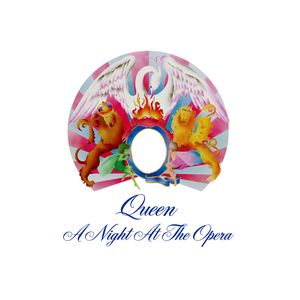
Bohemian Rhapsody
“Bohemian Rhapsody” is not just a song; it’s a rock opera in miniature form. Featured on the album A Night at the Opera, this six-minute masterpiece defies conventional song structure by blending ballad, opera, and hard rock elements into one seamless narrative. Freddie Mercury’s dynamic vocal performance is the driving force, shifting from soft introspection to a dramatic, multi-layered chorus that took studio technology of the time to its limits. The a cappella harmonies and intricate guitar solo by Brian May add further depth, demonstrating Queen’s commitment to pushing musical boundaries. Lyrically, “Bohemian Rhapsody” remains famously enigmatic, sparking endless interpretations around guilt, fate, and existential dread. Yet the emotional resonance is undeniable—listeners are swept into its theatrical world, culminating in a head-banging finale that still incites crowds decades after its release. The track’s groundbreaking music video cemented Queen’s reputation as visual innovators, heralding the MTV era before it even existed. Few songs in rock history can claim such a perfect fusion of artistry and mass appeal, which is why “Bohemian Rhapsody” stands as one of Queen’s—and rock’s—most defining works.
Final Thoughts
This ranking represents the pinnacle of Queen Top 10 Songs artistic achievement. Each song has earned its place through a combination of cultural impact, musical innovation, and enduring popularity.
Cultural Impact
Songs that shaped music history and influenced countless artists
Fan Favorites
Tracks with millions of streams and lasting popularity across generations
Watch Related Video
Last Updated: 4/9/2025

